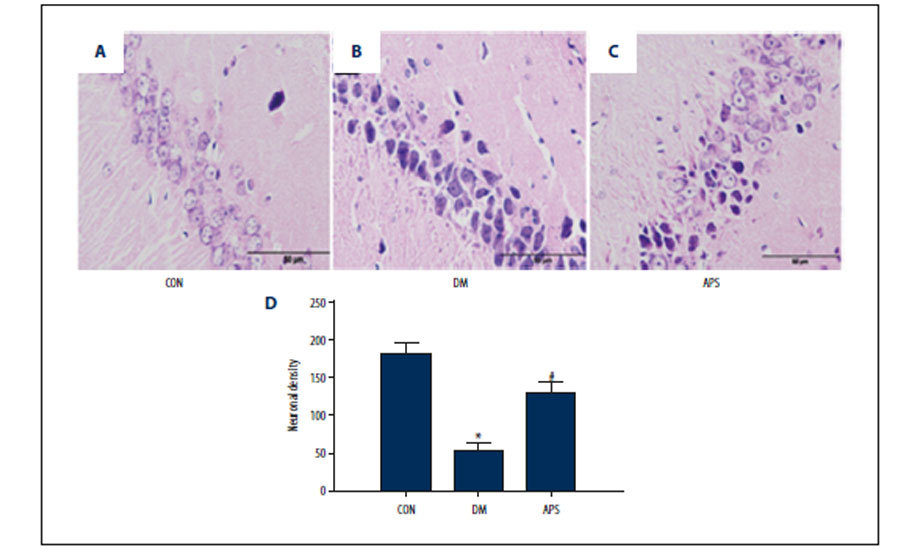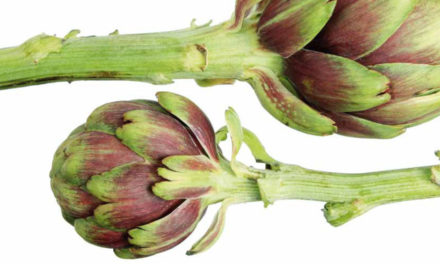Neuroprotective Effect of Astragalus Polysacharin on Streptozotocin (STZ)-Induced Diabetic Rats
A 1 Guyue Zhang
A 1 Hui Fang
B 2 Yukai Li
B 1 Jing Xu
C 1 Dandan Zhang
D 1 Yanan Sun
D 1 Lei Zhou
EF 1 He Zhang
1 Second Department of Endocrinology, Tangshan Gongren Hospital, Tangshan, Hebei, P.R. China
2 Department of Endocrinology, Wuhan Puai Hospital, Wuhan, Hubei, P.R. China
Authors’ Contribution:
Study Design A
Data Collection B
Statistical Analysis C
Data Interpretation D
Manuscript Preparation E
Literature Search F
Funds Collection G
Abstract
Background—In the recent years, there has been increasing interest in traditional Chinese medicine as a neuroprotective nutrient in the management of chronic neurodegenerative disease, such as diabetic cognitive decline. Astragalus polysacharin (APS), a Chinese herb extract, is a biologically active treatment for neurodegenerative diseases. Therefore, in the present study, we investigated the neuroprotective effects of APS (20 mg/kg) on diabetes-induced memory impairments in Sprague-Dawley (SD) rats and explored its underlying mechanisms of action.
Methods—Thirty SD rats were randomly divided into a control group (CON group, n=10), a diabetic model (DM) group (n=10), and an APS group (n=10). We administered 55 mg/kg streptozotocin (STZ, Sigma) by intraperitoneal injection to induce a diabetic model. Food and water intake, body weight, and blood fasting plasma glucose (FPG) were measured. The Morris water maze test (MWM) was used to assess learning and memory ability, and we measured levels of N-methyl-D-aspartate receptor (NMDA), calcium/calmodulin-dependent protein kinase II (CaMKII), and cAMP response element-binding protein (CREB) in the hippocampus.
Results—APS (20 mg/kg) administration decreased the rats’ fasting plasma glucose (FPG) levels and body weight. APS (20 mg/kg) administration improved the cognitive performance of diabetes-induced rats in the Morris water maze test. APS (20 mg/kg) administration reduced the number of dead cells in the CA1 region of the hippocampus. Furthermore, APS (20 mg/kg) administration obviously upregulated the phosphorylation levels CREB,
NMDA, and CaMK II.
Conclusions—These results suggest that APS has the neuroprotective effects, and it may be a candidate for treatment of neurodegenerative diseases such as diabetic cognitive impairment.
Keywords
Anti-N-Methyl-D-Aspartate Receptor Encephalitis • Astragalus Membranaceus • CREB-Binding Protein • Diabetes Complications • Mild Cognitive Impairment (…)









